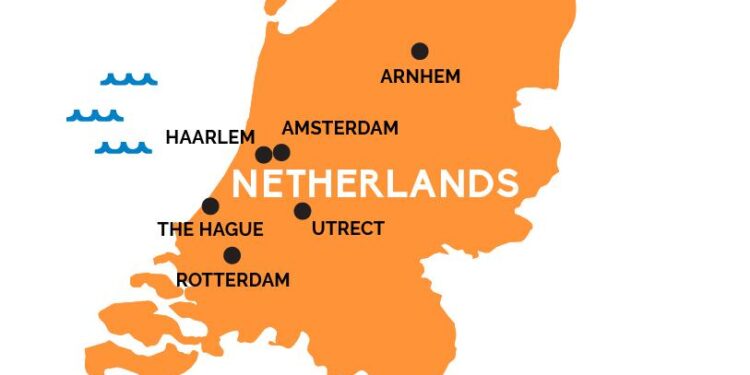The Netherlands continues to support the supply chain of Israeli F-35 fighter jets despite mounting criticism over the aircraft’s use in the ongoing conflict in Gaza, according to a recent report by Al Jazeera. The report highlights how Dutch companies remain involved in providing components and technology integral to the advanced stealth jets, raising ethical concerns amid calls for an arms embargo. This development sparks renewed debate over the Netherlands’ role in the controversial military relationship with Israel and the broader implications for European arms exports to conflict zones.
Netherlands Continues Support for Israeli F-35 Program Amid Controversy
The Dutch government has reaffirmed its commitment to supporting Israel’s F-35 fighter jet program despite increasing criticism over the aircraft’s use in conflict zones. Critics argue that the supply chain for these jets contributes indirectly to ongoing violence, labeling it a “supply chain of death.” Nevertheless, the Netherlands maintains its strategic partnership with Israel, emphasizing the benefits of advanced defense collaboration and technology sharing. Government officials highlight the importance of sustaining defense industry alliances for national security and economic interests, even as opposition groups call for a reassessment of the military cooperation.
Key concerns raised about the program include:
- Human Rights Issues: Reports link F-35 deployments to civilian casualties in contested regions.
- Export Controversies: Debates on ethics surrounding weapon supply chains and arms sales transparency.
- Regional Stability: Fears that advanced military support exacerbates tensions in the Middle East.
| Aspect | Netherlands’ Position | Public Reaction |
|---|---|---|
| Military Cooperation | Strongly Supported | Controversial among activists |
| Economic Interests | Positive Impact | Mixed Opinions |
| Human Rights Concerns | Acknowledged but Secondary | Heightened Activism |
Experts Warn of Ethical Implications in Arms Supply Chain
Industry insiders and human rights advocates have raised serious concerns over the complex web of ethical dilemmas embedded within the supply chain of Israel’s F-35 fighter jets. Experts point out that the involvement of multiple nations, including the Netherlands, in providing critical components and services raises questions about complicity in potential conflicts and violations of international law. Key issues highlighted include:
- Opaque contractual agreements limiting accountability
- Unclear end-use certifications risking weapon deployment in contentious zones
- Environmental and labor law violations in subcontracted manufacturing sites
- Potential breaches of arms trade treaties due to insufficient oversight
To better understand the scale and scope of the Netherlands’ role in this controversial initiative, the following table summarizes the core elements involved in the supply chain and their contentious aspects:
| Component | Supplier Country | Ethical Concern |
|---|---|---|
| Jet Engine Parts | Netherlands | Environmental compliance issues |
| Avionics Software | USA | Dual-use technology risks |
| Weapon Systems | Israel | Deployment in conflict zones |
Calls Mount for Dutch Government to Reassess Defense Partnerships
Growing international criticism has intensified pressure on the Dutch government to reconsider its involvement in defense collaborations that directly support the Israeli F-35 program. Activists and human rights organizations have sharply condemned the Netherlands’ continued contribution to what they describe as the “supply chain of death,” demanding a full audit of the military partnerships that facilitate weapon deliveries linked to conflict zones. These calls emphasize the humanitarian consequences of such cooperation, urging a shift towards policies that prioritize peace and accountability over arms trade interests.
Key points raised by opponents include:
- Ethical concerns surrounding Dutch firms’ roles in manufacturing and supplying components used in combat aircraft deployed in contested territories.
- Lack of transparency in procurement and government contracts related to defense exports.
- International diplomatic pressure on NATO members to align military support with global human rights standards.
| Stakeholder | Position | Action Requested |
|---|---|---|
| Human Rights Groups | Strong Opposition | Immediate suspension of defense contracts |
| Dutch Government | Supportive but cautious | Review and potential reassessment |
| Defense Industry | Defends existing partnerships | Maintain current agreements |
In Conclusion
As debates continue over the ethical implications of arms exports, the Netherlands’ ongoing involvement in the Israeli F-35 supply chain underscores the complex interplay between strategic alliances and human rights concerns. The report by Al Jazeera adds fresh scrutiny to Amsterdam’s defense policies, raising pressing questions about accountability and the role of Western governments in conflict zones. How the Dutch government responds to growing international criticism may well influence the broader conversation on military cooperation and arms trade regulations in the years ahead.
















